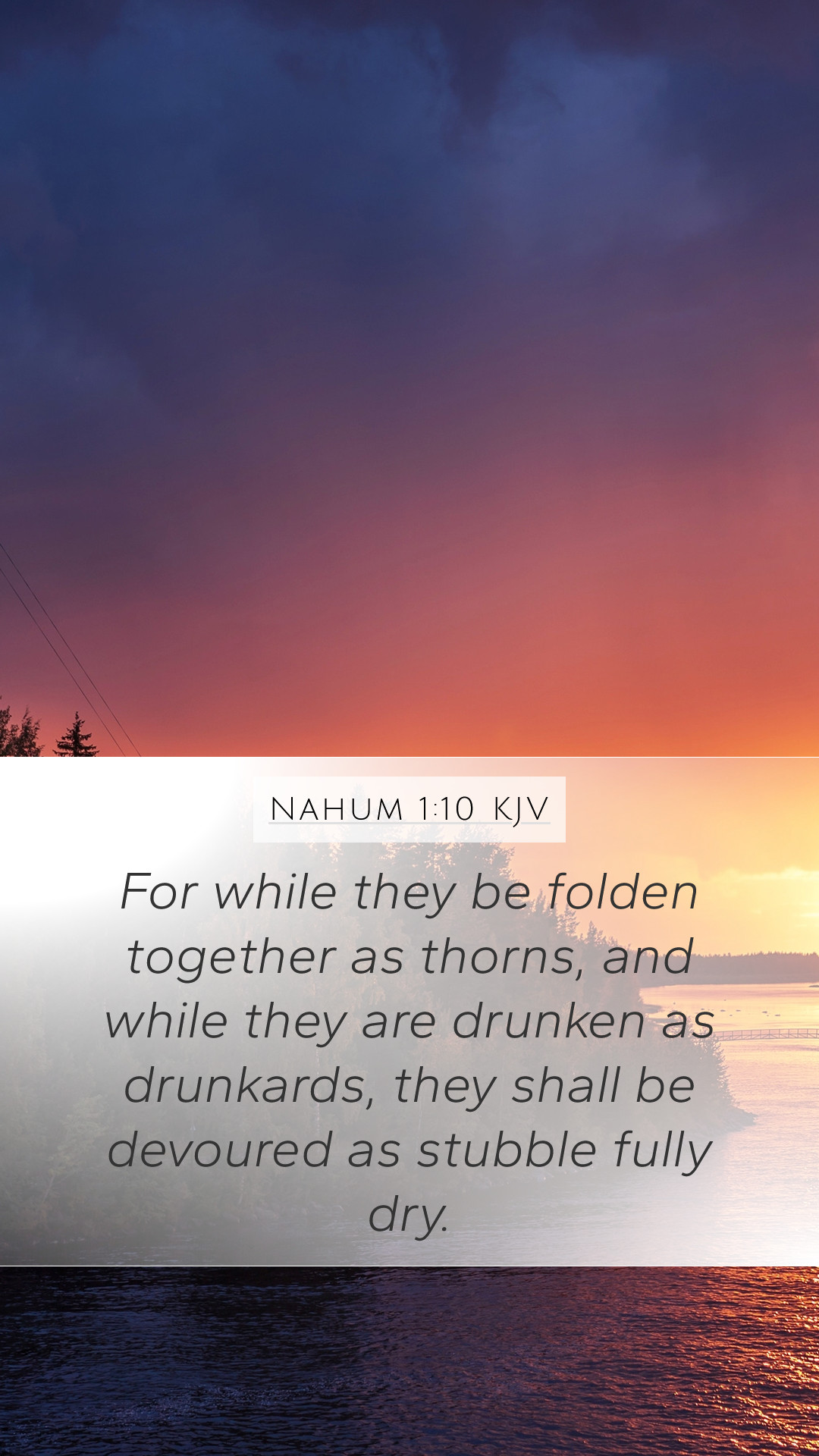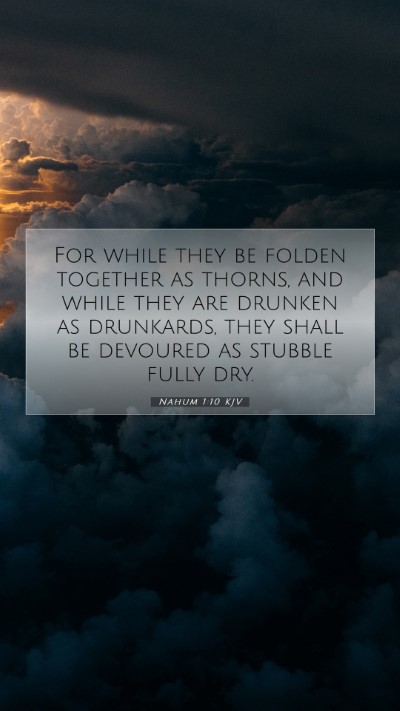Old Testament
Genesis Exodus Leviticus Numbers Deuteronomy Joshua Judges Ruth 1 Samuel 2 Samuel 1 Kings 2 Kings 1 Chronicles 2 Chronicles Ezra Nehemiah Esther Job Psalms Proverbs Ecclesiastes Song of Solomon Isaiah Jeremiah Lamentations Ezekiel Daniel Hosea Joel Amos Obadiah Jonah Micah Nahum Habakkuk Zephaniah Haggai Zechariah MalachiNahum 1:10 Meaning
What is the meaning of Nahum 1:10?
For while they be folden together as thorns, and while they are drunken as drunkards, they shall be devoured as stubble fully dry.
Nahum 1:10 Bible Verse Meaning
Understanding Nahum 1:10
Nahum 1:10 states: "For while they be folden together as thorns, and while they are drunken as drunkards, they shall be devoured as stubble fully dry." This verse draws a powerful picture of God's impending judgment against those who oppose Him, particularly the city of Nineveh. Below, we explore the meaning of this verse through insights from various public domain commentaries to aid in your Bible verse understanding.
Summary of Key Insights
This verse serves as a prophetic declaration of the destruction that awaits the wicked. Each part of the verse offers significant Bible verse explanations that reveal the nature of God’s judgment and the fate of the impenitent.
1. The Symbolism of Thorns
Matthew Henry notes that thorns are often symbols of trouble and adversity. In this context, the reference to being "folden together as thorns" suggests a collective state of rebellion against God, indicative of a nation united in its wickedness. The imagery conveys that their sinfulness is not only prevalent but also deeply entrenched, like thorns that are intertwined.
2. The State of Drunkenness
Albert Barnes elaborates that the comparison of the wicked to "drunkards" speaks to their lack of self-control and spiritual awareness. Just as a drunkard is intoxicated and dulled to reality, so too are the enemies of God unaware of the looming consequences of their actions. Their senses are numbed, and they are unprepared for the judgment that will soon come upon them.
3. The Final Destruction
Adam Clarke states that the phrase "devoured as stubble fully dry" portrays the swiftness and completeness of God's judgment. Stubble, being dry and easily consumed by fire, symbolizes the fragility of the wicked and the inevitability of their destruction. This imagery emphasizes that resistance against divine authority ultimately leads to ruin.
Connecting Themes
These insights emphasize the broader themes found within this verse, which are vital for Bible study insights:
- Judgment: The certainty of God’s judgment against sin.
- Accountability: Every individual and nation is accountable to God.
- Hope for the Righteous: While the wicked face destruction, the faithful have hope.
Practical Application
Understanding this verse is crucial for those exploring how to interpret Bible verses. One can apply its lessons to daily life by recognizing the importance of righteousness and the dangers of spiritual complacency. It also encourages believers to stay vigilant and committed to God's ways, prompting reflection on personal accountability.
Related Cross-References
To further your study, consider exploring these related verses:
- Isaiah 10:17: The Lord will be a light and the Assyrian will fall.
- Zephaniah 2:13-15: The desolation of Nineveh foretold.
- Proverbs 13:15: Good understanding gives favor, but the way of the transgressor is hard.
This detailed Bible verse commentary on Nahum 1:10 reveals the seriousness of divine judgment and serves as a reminder of the fragility of life when lived outside of God’s will. Engage further with this verse in your Bible study groups, and utilize the insights here as valuable Bible study tools for deeper learning and understanding.


